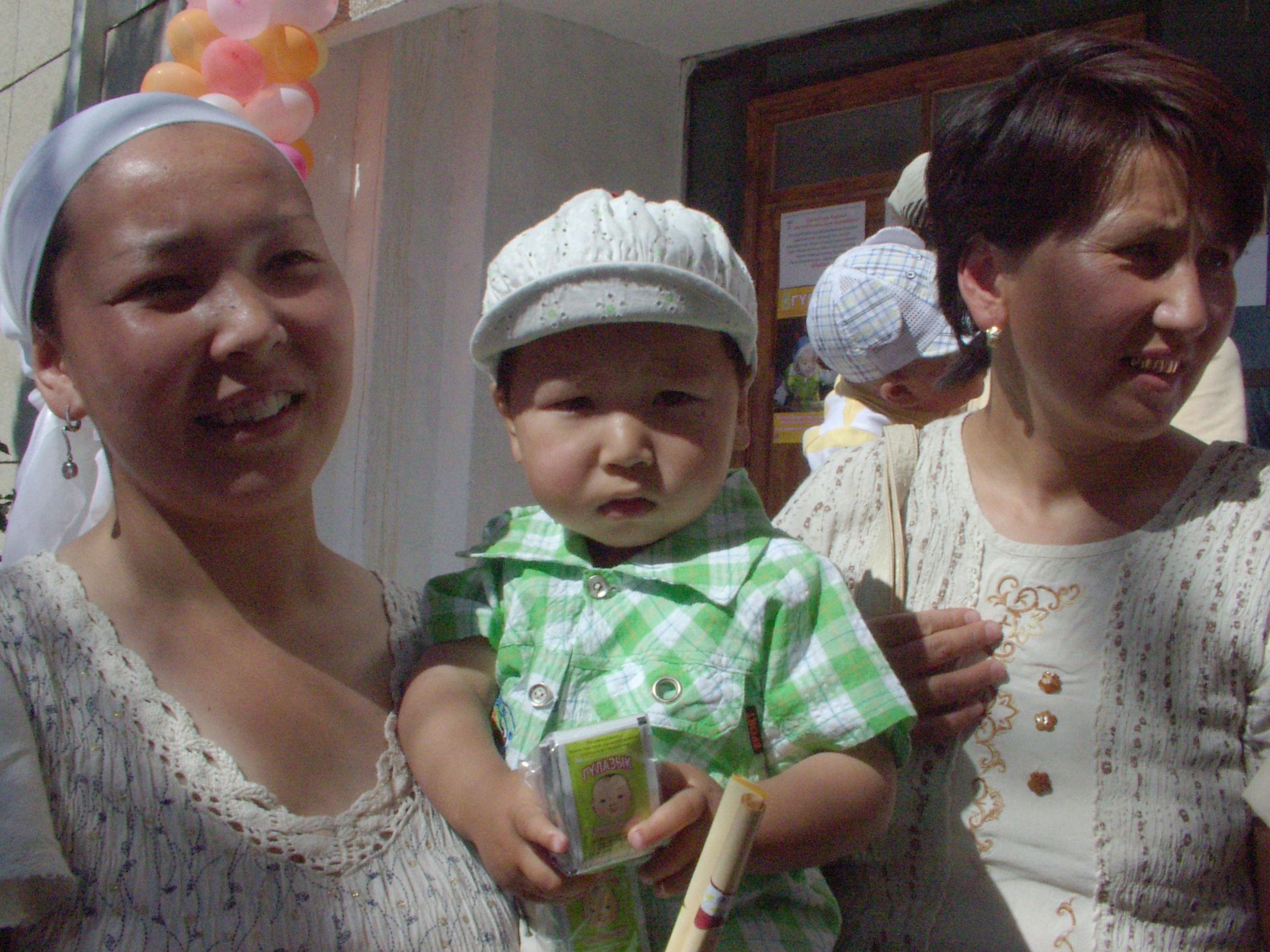According to UNICEF, at the end of 2008 iron deficiency anaemia was present in 50 percent of women and children in Kyrgyzstan; in Talas the figure was 70 percent.
Talas also has the highest level of stunting in the country - 27.3 percent. Anaemia and stunting indicate a lack of micronutrients, and urgent intervention is required, say experts.
“To help solve the problem of nourishment for children in Talas Oblast [province], UNICEF - together with the Ministry of Health of Kyrgyzstan and in close cooperation with the Kyrgyz-Swiss-Swedish Project - has started distributing nutritional supplement `Gulazyk’ for the fortification of food for children aged from six months to two years at home,” Timothy Shaffter, head of the UNICEF office in Kyrgyzstan, told IRIN.
The population of Talas Province is about 217,000, including 7,500 children aged six months to two years, according to the local health department. UNICEF officials say all these children will be covered by the project, which started at the end of June.
Research indicated that children were not getting sufficient vitamins and microelements. “We are certain that `Gulazyk’ will help in this case,” Shaffter said.
According to UNICEF experts in Kyrgyzstan, lack of vitamins and microelements in the human body leads to congenital malformation, problems in physical and intellectual development, and higher susceptibility to contagious and parasitic diseases.
|
Photo: Gulnara Mambetalieva/IRIN  |
| Mothers with their babies at a clinic waiting to get Gulazyk supplement |
Gulbarchyn Torobekova, head of the Talas regional centre for family medicine, said members of village health committees were involved in distributing the supplement in remote areas.
UNICEF has provided these committees - as well as village medical personnel and health posts - with the supplement, and a leaflet has been distributed explaining in detail how to add the sachets to food given to children, she said.
“If the administration of `Gulazyk’ proves effective then in future the programme will be extended to all the regions of Kyrgyzstan,” Shaffter said.
The Dutch National UNICEF Committee and the US Centers for Disease Control and Prevention have provided about US$300,000 for the project.
gm/at/cb
This article was produced by IRIN News while it was part of the United Nations Office for the Coordination of Humanitarian Affairs. Please send queries on copyright or liability to the UN. For more information: https://shop.un.org/rights-permissions





